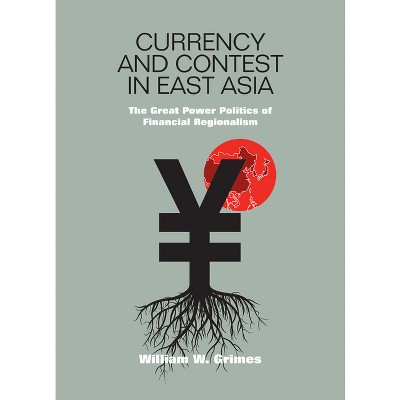Sponsored

Taming Japan's Deflation - (Cornell Studies in Money) by Gene Park & Saori N Katada & Giacomo Chiozza (Hardcover)
In Stock
Sponsored
About this item
Highlights
- Bolder economic policy could have addressed bouts of deflation in post-Bubble Japanese history, write Gene Park, Saori N. Katada, Giacomo Chiozza, and Yoshiko Kojo in Taming Japan's Deflation.
- About the Author: Gene Park is Associate Professor of Political Science at Loyola Marymount University.
- 264 Pages
- Political Science, Political Economy
- Series Name: Cornell Studies in Money
Description
About the Book
"Discusses how entrenched monetary policy ideas within the Bank of Japan, protected by policy network, inhibited addressing persistent deflation since its de jure independence of 1998"--Book Synopsis
Bolder economic policy could have addressed bouts of deflation in post-Bubble Japanese history, write Gene Park, Saori N. Katada, Giacomo Chiozza, and Yoshiko Kojo in Taming Japan's Deflation. Despite warnings from economists, intense political pressure, and "unconventional monetary policy" options to address this problem, Japan's central bank, the Bank of Japan (BOJ), resisted taking the bold actions that the authors believe would have helped.
With Prime Minister Abe Shinzo's return to power, Japan shifted course in early 2013 with the launch of his "Abenomics" economic agenda to reflate the economy and his appointment of a new leadership at the BOJ to achieve this goal. As Taming Japan's Deflation shows, the BOJ's resistance to bolder policy stemmed from entrenched policy ideas that were hostile to activist monetary policy. The authors explain how these policy ideas evolved over the BOJ's long history and gained dominance due to the closed nature of the policy network.
The explanatory power of policy ideas and networks suggests an inadequacy in the dominant framework for analysis of the politics of monetary policy derived from literature on central bank independence. This approach privileges the interaction between political principals and their agents, central bankers; but Taming Japan's Deflation shows that central bankers' views can be decisive in determining monetary policy. Addressing the challenges through institutional analysis, quantitative empirical tests, in-depth case studies, and structured comparison of other countries to Japan, the authors show that the adoption of aggressive monetary policy depends on bankers' established preceding policy ideas and policy network structure.
Review Quotes
An informed and in-depth look at the institutional, intellectual, and political environment that allowed deflation to take root... Taming Japan's Deflation is indispensable for anyone who wants to understand why Japan lingered in deflation for so long and how it switched to different policies that may be leading to better outcomes.
--William Grimes, Professor of International Relations and Political Science, Boston University, and author of Currency and Contest in East Asia "Pacific Affairs"This is an outstanding book on a topic of great importance... this book provides the most detailed and insightful account written in the English language of the ideational and political institutional contexts that inform the Bank of Japan's (BOJ) decisions about monetary policy in the contemporary era.
--William Grimes, Professor of International Relations and Political Science, Boston University, and author of Currency and Contest in East Asia "Perspectives on Politics"About the Author
Gene Park is Associate Professor of Political Science at Loyola Marymount University. He is the author of Spending without Taxation. Saori N. Katada is Associate Professor in the School of International Relations at the University of Southern California. She is the author of Banking on Stability. Giacomo Chiozza is an expert in world politics and statistical modeling, and co-author, most recently, of Leaders and International Conflict. He is Associate Professor in the Department of International Studies at the American University of Sharjah. Yoshiko Kojo is Professor in the Department of Advanced Social and International Relations at the University of Tokyo. She is a contributor to Japan in International Politics.
Shipping details
Return details
Frequently bought together

Trending Non-Fiction
















